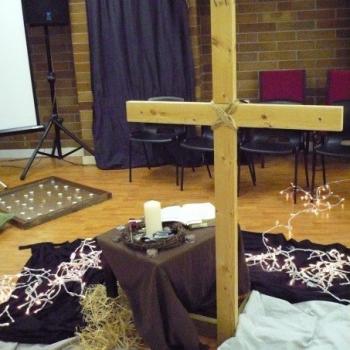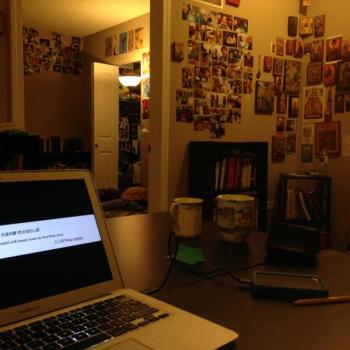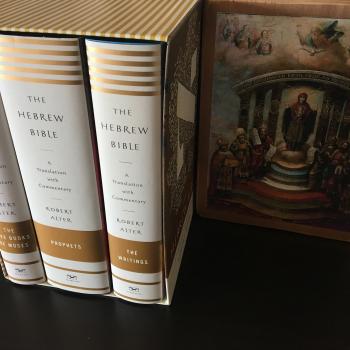I do think that Churl has inadvertently hit on a key but unexplored part of the Driscoll complex with his call to revisit Trent. You see, “the world called Catholicism,” as Stanley Hauerwas puts it (Hannah’s Child, p. 95-121), is not something foreign to Driscoll. Driscoll grew up Irish American Catholic, “the oldest of five kids in a hardworking, blue-collar Catholic family near the airport in Seattle, Washington” (Radical Reformission, 11). He describes himself as a “moral religious boy from a Catholic home who, for the most part, stayed out of trouble despite a short wick, foul mouth, and bad temper that resulted in dolling out more than a few beatings to various guys–usually for what they were doing to women and children” (Real Marriage, 6). Besides all the quips about growing up in a church with “a gay alcoholic priest” whose “life of poverty, celibacy, living at the church, and wearing a dress was more frightful than going to hell” (Real Marriage, 8-9), he has more than once aptly demonstrated his Catholic creds for his congregation, not least during a sermon on Mary in his Luke series where he says:
I’ll say a lot today about the Catholics, because I was one. And I don’t hate the Catholics, I love the Catholics, but when it comes to Mary, that’s sort of their specialty. I was raised as a Catholic boy and I went to Catholic school. We were O’Driscoll, full-blown Irish-Catholic mix. My grandma was in a lay order of nuns pre-Vatican II. Latin Mass Catholic, I went to Catholic school. Catholic with a side of Catholic and Catholic for dessert, that’s how I was raised.
He has also been known to recite the Hail Mary for a wildly applauding congregation.
The trouble, I think, is that everybody, likely including Driscoll himself, thinks that Driscoll had a full-blown conversion to Protestant evangelicalism when the words from Romans 1:6 jumped out at him that he was “among those called to belong to Jesus Christ” (Radical Reformission, 13; Real Marriage, 8), as if Romans were a Protestant-only epistle (see below for Driscoll’s reading of Luther and Wesley).
I’m more inclined to think of him as an Irish Catholic kid in a Reformed Protestant candy store.











